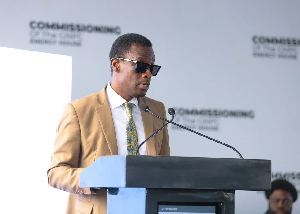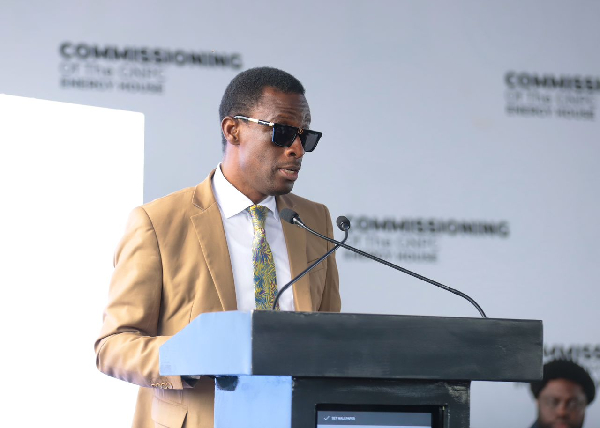 Kwabena Okyere Darko-Mensah, the Western Regional Minister
Kwabena Okyere Darko-Mensah, the Western Regional Minister
Kwabena Okyere Darko-Mensah, the Western Regional Minister, says the ambitious target of increasing renewable energy in the energy mix by 2030 requires greater collaboration from all sector players.
“Stakeholders involvement is thus vital for the success of government policies, especially during this period of transition from state-owned to private sector.”
He further said, “The transformation of Ghana’s energy system is one of the most significant undertakings in our nation’s history.
The government is taking action to speed up with the energy transition, and secure our industrial base through a diversified energy generation mix and we are now firmly moving into the age of renewables.”
Mr Darko-Mensah made the arguments at the opening of the Ghana Energy Week -2024 in Takoradi in the Western Region.
It was on the theme: “Renaissance of Ghana’s energy; the renewed commitment towards inclusive and sustainable energy transition, Decarbonisation, and making energy poverty history for economic diversification.”
The event would improve upon Ghana’s energy climate by assessing key factors that impacted on investment decisions and strategies to attract exploration and production, while deepening technology transfer and capacity building.
Ghana, Mr Darko-Mensah believed, has vast energy needs and must surely reach its potential.
He added, “As we continue the path of green energy, we are confronted with the question of how regulation can continue to support emissions reduction while delivering affordable, reliable energy to all Ghanaians.
The good news is that we have made genuine progress in addressing climate change and took significant steps towards de-carbonisation.”
The Regional Minister said Ghana had a huge potential of energy resources and when fully harnessed and used efficiently, it would enhance energy security, create jobs, stimulate local and attract investments.
Mr Darko-Mensah said transitioning to cleaner and greener energy was vital for Ghana’s future with the Western Region leading the way.
The Region, he reported, as the nation’s hub for oil and gas production, carried about 100 percent of Ghana’s oil production, boosting not only Ghana’s economy but had also paved the way for the development of related infrastructure, including the Gas Processing Plant.
He indicated that the demand and supply patterns of energy generation and consumption are crucial for a country’s economic growth and overall well-being, noting that Ghana’s energy sector relied mainly on hydropower, thermal and recently solar.
Mr Darko-Mensah said Ghana’s energy mix required that she work towards greener energy sources to mitigate climate change and minimise its effects, hence working towards meeting global climatic goals.
“Although crude oil has contributed significantly to electricity generation and industry in Ghana, the use of natural gas and modern renewable energy sources is increasing,” he stated.
“Also, the limited access to clean energy sources and electricity in rural areas negatively affects socio- economic development in some of these areas,” he noted.
“For this reason, among others, the government in the near future has a blueprint to harness green energy sources to propel rural development,” Mr Darko-Mensah suggested.
The Regional Minister noted that the theme for the event was appropriate as it highlighted the importance of economic diversification and ending energy deficiency, stressing “let’s empower the next generation of Africa entrepreneurs, unleashing an inclusive and sustainable energy pathway.”
He continued, “Ghana has indeed been making progress towards a more sustainable energy future. The focus on inclusive and sustainable energy transition, de-carbonisation, and reducing energy poverty aligns with global efforts to address climate change and promote economic development.”
Darko-Mensah said the country must consistently work to make energy affordable and cleaner for the general well-being of all, adding that faced with this transformation, it was essential that the country evaluated existing policies and regulatory settings to ensure that they aligned with the changing needs of the country.
